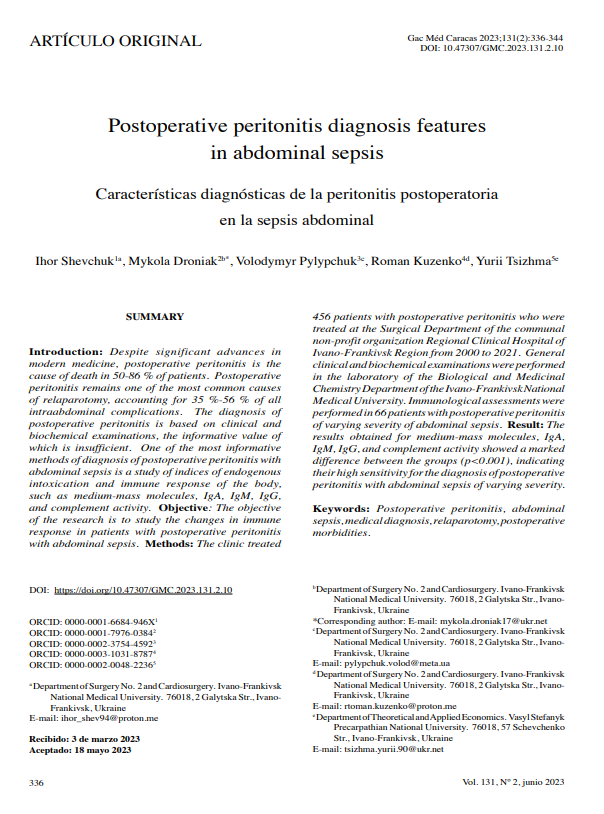Postoperative peritonitis diagnosis features in abdominal sepsis
Contenido principal del artículo
Resumen
Introduction: Despite significant advances in modern medicine, postoperative peritonitis is the cause of death in 50-86 % of patients. Postoperative peritonitis remains one of the most common causes of relaparotomy, accounting for 35 %-56 % of all intraabdominal complications. The diagnosis of postoperative peritonitis is based on clinical and biochemical examinations, the informative value of which is insufficient. One of the most informative methods of diagnosis of postoperative peritonitis with abdominal sepsis is a study of indices of endogenous intoxication and immune response of the body, such as medium-mass molecules, IgA, IgM, IgG, and complement activity. Objective: The objective of the research is to study the changes in immune response in patients with postoperative peritonitis with abdominal sepsis.
Descargas
Detalles del artículo

Esta obra está bajo una licencia internacional Creative Commons Atribución-NoComercial 4.0.
